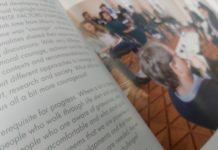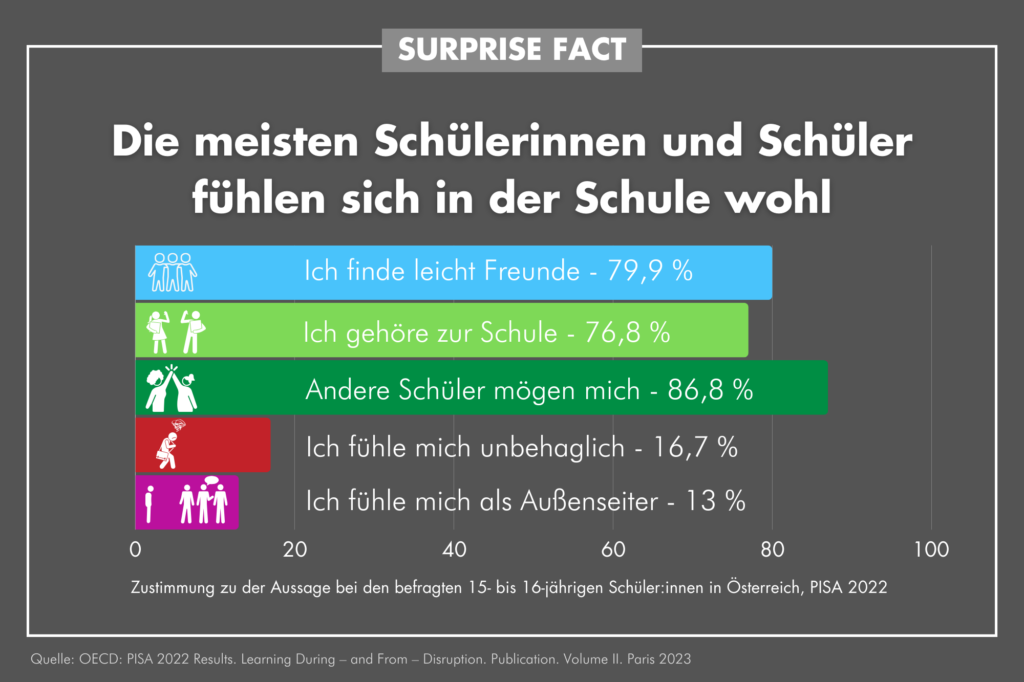Gabriele Fischer was an expert at this years SURPRISE FACTORS SYMPOSIUM „Where does freedom start and where does it end?” in Gmunden.
The Interview with Gabriele Fischer:
When you think about the connection between freedom and addiction, the issue often comes down to the freedom of the individual to use substances without interfering with the freedom of anybody else. But addiction carries with it a stigma. When you talk about someone “being addicted” you are not talking about something good. Usually people relate addiction to illegal drugs.
But globally the greatest addiction is to food. A year ago the World Health Organization put out the numbers that we have more people on the planet who are suffering from being overweight than underweight. So while most people want to talk about the implications of heroin addiction, for example, or cocaine addiction, the most important issue today are food and eating disorders.
„Drugs and addiction are so political, that makes rational discussions rarely possible.”
The issue of freedom comes in when the state gets involved. For example, recently Recep Erdogan, the President of Turkey, invited to his palace men who had successfully stopped smoking. He decided that the state needs to take over the responsibility when it comes to addiction to nicotine. Nobody has the freedom to use drugs, including nicotine. And there is a new law that anybody who is suffering from lung cancer won’t be covered by insurance any more. Now you apply that same idea to obesity and to people who are addicted to food. Would you say to someone who needs a hip replacement operation, “You are too big so we won’t pay for your operation”?
Some of addiction is related to genes. But it’s also related to availability, it’s related to life events. Everyone knows, for example, if you have breast cancer in your family you have a higher likelihood because of genetic loading. The same is true of psychiatric disorders. You are subject to a special risk.
When it comes to addiction we have responsibility and freedom. We can only live with freedom if we also accept responsibility. Last evening we had a wonderful wine at dinner. But we were taking responsibility: We drank wine but we didn’t drive. The other example is tolerance. Let’s say the owner of a hotel sees that somebody has been drinking too much and still wants to drive home. Letting him do that isn’t tolerance; it’s INDIFFERENCE.
„Everyone is addicted to something.”
When I think of using drugs, including food, for me it comes down to the individual freedom to decide what you want to take. But as soon as you become dependent, then you have lost your freedom. If you need to smoke a cigarette, you lose your freedom. You are suffering because you have lost your freedom. You are restricted from what you can do.
There’s a movie coming out about Janis Joplin who once said, “Freedom’s just another word for nothing left to lose.” She was very unhappy as a young girl. She didn’t look very nice, and she took heroin because it gave her a feeling of warmth and love. In her case it was the responsibility of others to help her. We need to take responsibility for someone in this condition because the person herself can’t judge anymore.
Personal data:
Gabriele Fischer is addiction researcher and professor of psychiatry, she heads the department for addiction research and therapy at the Medical University of Vienna. Moreover, she is chief commissioner of the OPCAT (Optional Protocol to the Convention against Torture) Austria. As advisor to the UN and WHO she developed treatment strategies for addicted women in Afghanistan that meet human rights standards. Fischer has authored more than 180 publications and held more than 500 scientific talks.
Fischer is considered one of the best in her field of study. In her daily work, she focusses on (drug) addiction and dedicates her research to answering the question what limitations an addiction brings to the lives of affected people and their social environment. As a scientist, she completed parts of her education at Washington University, USA. In her field of research she has received numerous national and international grants (EU, NIH).
As a co-founder of the Austrian health platform “Women for Women” (Frauen für Frauen – Gesundheit im Brennpunkt) Fischer established a platform, which ensures a better and more appropriate treatment of patients as well as a more efficient network among female medical personnel particularly in Vienna.







